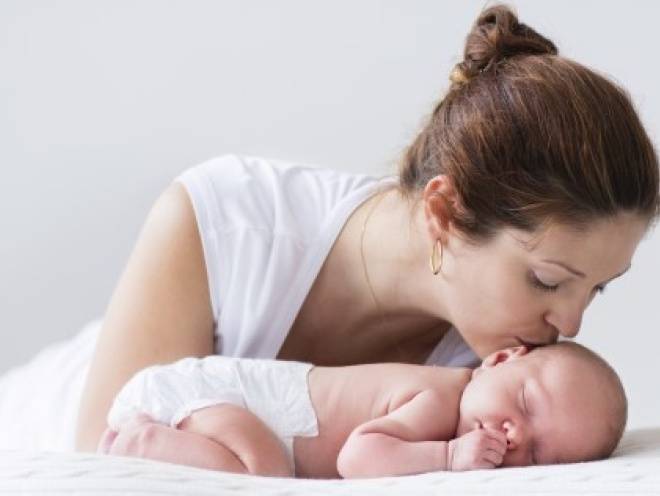The arrival of a new baby is often portrayed as one of the happiest times in a couple’s life. However, for some mothers, the postpartum period feels overwhelming and filled with unexpected challenges. Many new moms experience what’s commonly called the “baby blues” after giving birth, but for some, these feelings of sadness, anxiety, and disconnection run deeper.
This more intense emotional struggle some new mothers face is postpartum depression (PPD), a condition that affects up to 1 in 7 women after childbirth. This condition not only affects the mother’s emotional well-being but also hinders her ability to bond with her baby.
As a partner, witnessing your loved one struggle with PPD can be confusing and heartbreaking. Watching someone you love go through this difficult experience makes you helpless or unsure how to assist. However, with patience, understanding, and a few practical steps, you can play a vital role in supporting your partner and helping her connect more deeply with your baby. One of the most important things you can do is support your partner as she works to bond with your newborn.
Building that connection is challenging during PPD, but with the right approach, patience, and care, you can resolve the problem. This article will dive deep into postpartum depression, how it disrupts the mother-baby bond, and most importantly, how you can help your partner feel more connected to your child during this critical time.
What is Postpartum Depression?
Postpartum depression is a serious mental health condition that occurs in the weeks or months after childbirth. It’s different from the “baby blues,” which typically lasts a couple of weeks and causes mild and temporary mood swings, tearfulness, sadness, and fatigue.
PPD, on the other hand, is more severe, lasts much longer, and interferes with a mother’s ability to care for and bond with her baby. It develops anytime within the first year after giving birth, though it often begins within the first few weeks. It can persist for several months or longer if left untreated.

Symptoms of postpartum depression vary but may include:
- Persistent feelings of sadness, hopelessness, or numbness
- Extreme fatigue or feeling drained of energy
- Difficulty bonding with the baby or feeling indifferent toward the baby
- Feeling irritable or angry for no apparent reason
- Mood swings
- Intense anxiety or panic attacks
- Trouble sleeping, even when the baby is asleep
- Loss of interest in activities she once enjoyed
- Feelings of guilt, shame, or worthlessness
- Thoughts of self-harm or harming the baby (in severe cases)
Postpartum depression is not a reflection of a mother’s love for her baby or her capabilities as a parent. It isn’t something a mother can “snap out of.” A combination of factors such as hormonal changes, life stressors, and depression history can contribute to this condition. Understanding this distinction helps you offer nonjudgmental support and reassure your partner that she is not at fault for what she is experiencing. It’s a medical condition that needs proper care and support, like other health issues.
How Postpartum Depression Affects the Mother-Baby Bond
The first few months of a baby’s life are crucial; establishing a bond with their mother is vital. The bond formed helps the baby feel secure, loved, and cared for, which lays the foundation for healthy emotional development. Bonding with a parent keeps a baby safe and supported for healthy growth.

But when a mother is dealing with postpartum depression, it can be difficult for her to engage fully in this bonding process. Mothers dealing with PPD may feel disconnected from their babies. This disconnect manifests in many ways, including reluctance to engage in basic caregiving tasks, feeling distant during feedings or cuddle time, or struggling to respond to the baby’s needs–changing diapers and comforting their babies.
It also interferes with their ability to respond to their baby’s cues, a vital part of early communication and attachment. This emotional distance leads to feelings of guilt, inadequacy, and failure, creating a vicious cycle that worsens the depression. However, this disconnect isn’t the mother’s fault. While this situation is undoubtedly difficult, the mother-child bond can still develop, even if PPD is present.
By offering compassionate and practical support, help your partner reconnect with your baby, building a strong and loving relationship over time. Postpartum depression is a complex condition due to interconnected factors—hormonal changes, emotional stress, and sometimes underlying mental health issues. As a partner, one of the most significant ways to help is to provide support that encourages bonding in a gentle, non-pressuring way.
How to Help Your Partner Bond with the Baby During Postpartum Depression
1. Educate Yourself About Postpartum Depression
One of the best things you can do for your partner is to educate yourself about postpartum depression. Understanding what she’s going through helps you provide better support and make her feel less isolated. Read up on the symptoms, causes, and treatment options for postpartum depression. This will also help you recognize warning signs that indicate the need for professional help.
You can start by reading trusted sources like Omegapediatrics.com, which offers valuable resources on postpartum mental health. By familiarizing yourself with what your partner is going through, you can approach conversations with more empathy and avoid accidentally dismissing or minimizing her feelings.
2. Be Present and Listen Without Judgment
Your partner feels overwhelmed, ashamed, or guilty about her feelings. Let her know that you’re there to listen without judgment. It’s hard for someone with postpartum depression to open up, especially if they feel being judged or misunderstood. Offering a safe space to express her thoughts and feelings makes a difference.
When she talks, don’t offer solutions immediately unless she asks for advice. Sometimes, she may need someone to listen and validate her emotions. Statements like “I understand this is hard for you” or “It’s okay to feel the way you do” can be comforting.
3. Encourage Professional Help
Postpartum depression is a medical condition that requires professional treatment. Encourage your partner to talk to her healthcare provider about her symptoms. Many women with postpartum depression benefit from therapy, medication, or a combination of both. Cognitive behavioral therapy (CBT) is a common approach that helps mothers identify and challenge negative thought patterns related to depression.
If your partner is hesitant to seek help, reassure her that it’s fine to ask for support and that seeking treatment doesn’t mean she’s failing as a mother. Offer to go with her to appointments or help her find a therapist who specializes in postpartum mental health. There are many resources, including support groups for new mothers experiencing postpartum depression.
4. Promote Skin-to-Skin Contact
Physical closeness builds a bond between mother and baby. Skin-to-skin contact is one of the most effective ways to do this. Holding the baby close to her chest with skin touching releases oxytocin—a hormone that promotes feelings of love and attachment. It also helps the baby feel safe and secure.
If your partner feels detached from the baby, encourage her to try short periods of skin-to-skin contact. Make it a bonding moment for the whole family through skin-to-skin contact, taking turns holding the baby against your chest. These small moments of connection are very comforting for the mom and baby.
5. Involve Your Partner in Baby Care in Small Steps
During postpartum depression, basic tasks feel overwhelming for your partner. Offering to share baby care duties lightens her load and gives her the confidence to engage more with your child. Instead of taking over completely, encourage her to participate in small and manageable ways.
For example, if you’re changing the baby’s diaper, ask her if she’d like to hold the baby afterward. If you’re bottle-feeding, see if she’d like to sit with you while you feed the baby. The goal is to help her feel involved without putting too much pressure on her to do everything herself.
6. Ensure She Gets Rest and Self-Care Time
Lack of sleep worsens postpartum depression. New mothers, in particular, are exhausted from the demands of caring for a newborn, making it harder to cope with emotional challenges. As her partner, ensure she gets enough rest and has time for self-care.
Take on extra baby duties at night or early morning so your partner gets uninterrupted sleep. If possible, arrange for a family member or a friend to help out occasionally, giving both of you a chance to rest. Encouraging self-care—a short walk outside, a warm bath, or a few minutes of quiet time—helps your partner feel refreshed and capable of handling the day-to-day challenges of new motherhood.
7. Create Joyful, Low-Pressure Moments with the Baby
For mothers with postpartum depression, finding joy in daily life can be difficult. Create fun moments and connections with the baby that are low-pressure and stress-free. For example, plan short activities allowing your partner to engage with the baby without feeling overwhelmed.
Try as simple as soft music, swaying with the baby, reading a short book together, or playing peekaboo. These activities don’t need to be long or elaborate—they’re meant to be lighthearted and joyful, helping your partner see that bonding doesn’t have to be forced or complicated.
8. Be a Source of Emotional and Practical Support Around the House
When dealing with postpartum depression, your partner feels isolated and overwhelmed by the demands of motherhood. Being there for her emotionally and practically eases her burden. Offer to take over household chores like cooking, cleaning, and running errands, so she has more time to focus on herself and the baby.
Don’t underestimate the power of emotional support, either. Regularly check in on her feelings and remind her she’s not alone. Let her know you’re together as a team. It’s fine to ask for help when needed.
When to Seek Immediate Help
While postpartum depression can be managed with therapy, medication, and support from loved ones, there are times when immediate medical attention is necessary. If your partner shows signs of postpartum psychosis—a rare but severe form of postpartum mental illness—get help right away. Symptoms may include:
- Hallucinations or delusions (seeing or hearing things that aren’t real)
- Paranoia or confusion
- Thoughts of harming herself or the baby
- Extreme agitation or anxiety
- Severe mood swings
If you notice any of these symptoms, contact her healthcare provider immediately or take her to the nearest emergency room. Postpartum psychosis is a medical emergency and requires urgent treatment. For more information on recognizing severe mental health conditions in new mothers, visit Omegapediatrics.com, where they offer guidance on when to seek professional help for postpartum mental health crises.
Support Your Partner Through Postpartum Depression: Help Her Feel More Connected to Your Baby
Postpartum depression can feel like an isolating and overwhelming experience, but with the right support, mothers recover and develop strong bonds with their babies. As a partner, your role is vital during this time. Supporting a partner through postpartum depression is a delicate balance of empathy, patience, and practical help.
By understanding PPD and how it impacts the mother-baby bond, you help your partner feel more connected to your baby. By promoting bonding activities like skin-to-skin contact and sharing caregiving responsibilities, you can help your partner navigate this difficult period. Most importantly, be patient with your partner and yourself—bonding doesn’t happen overnight, and every small step forward is a victory. It’s fine if progress feels slow. Every small step toward connection is meaningful.
Don’t hesitate to seek professional help if your partner’s depression persists or worsens. PPD is treatable, and with the right support, your partner will eventually find her way through postpartum depression and enjoy motherhood. You and your partner can build a strong, loving bond with your baby that will last a lifetime.
A great resource for learning more about postpartum depression is Omegapediatrics.com. They offer a wealth of information on postpartum care, mental health, and how partners support new mothers through the ups and downs of parenthood. These articles are insightful:






